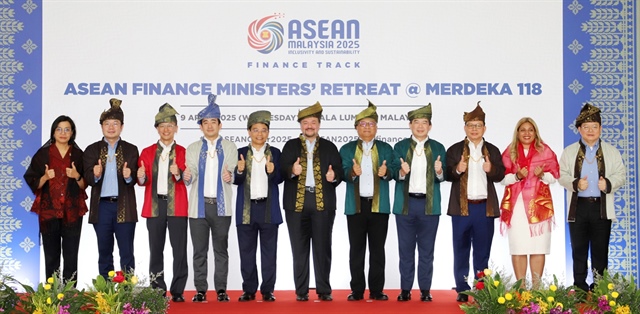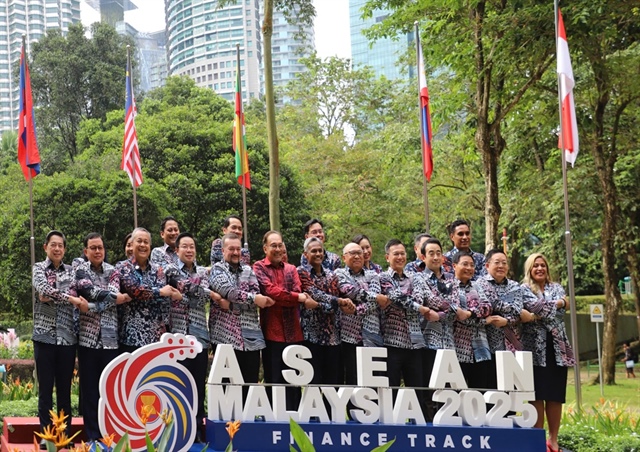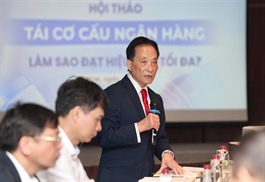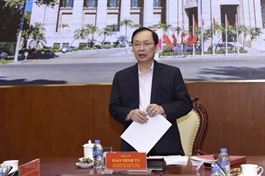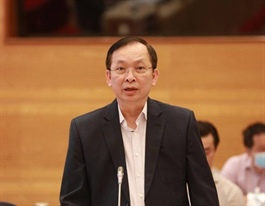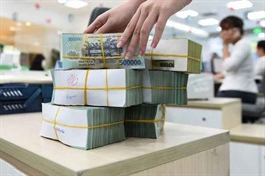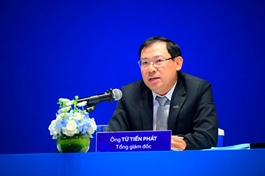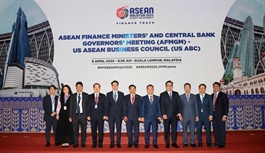ASEAN remains committed to financial integration
ASEAN remains committed to financial integration
Amid the recent global uncertainty, ASEAN has reaffirmed its commitment to strengthen financial resilience and accelerate financial integration within the region, thereby supporting greater intra-ASEAN trade and investment.
|
The 12th ASEAN Finance Ministers’ and Central Bank Governors’ Meeting (AFMGM) released a statement on April 10, covering the latest trends and ASEAN’s commitments.
ASEAN’s economic performance continues to be underpinned by strong domestic demand, steady investment activity, robust export performance, as well as favourable employment conditions, amid moderating inflation.
The region is expected to remain resilient amid ongoing external headwinds. However, concerns were expressed over the recent announcement of additional tariffs by the United States and their potential impact on the region's economies. With ASEAN members’ economic openness and reliance on external trade, factors such as slower global growth, a contraction of international trade and reduced investment flows could adversely impact growth for all. The uncertainties arising from the imposition of tariffs and potential retaliation could pose risks of heightened volatility in both capital flows and exchange rates. AFMGM is monitoring this closely and stands ready to address this volatility if the need arises.
ASEAN reaffirms its continued commitment to the open, inclusive, and rules based multilateral trading system and to ASEAN’s economic integration. ASEAN stands ready to work constructively with all partners, including the US, to find balanced, forward-looking solutions that support a more resilient and sustainable global economy. The association commits not to impose any retaliatory measures in response to the US tariffs.
|
AFMGM also lauded Malaysia’s 2025 ASEAN chairmanship and endorsed Priority Economic Deliverables in the finance and central bank track, namely catalysing access to finance for just transition and climate-resilient ASEAN; accelerating the growth of a more sustainable, connected and inclusive capital market; and fostering inclusive instant payment connectivity.
Noting the substantial investment and private capital needed to bring these regional projects to fruition, AFMGM encouraged the participation of multilateral development banks, the private sector, investors and philanthropists from beyond the region. AFMGM will also explore suitable financing structures and alternative tools, including Islamic finance solutions, which offer broader instruments, to better mobilise private sector financing for APG projects, as well as lay the groundwork for broader private sector participation in sustainable infrastructure development.
ASEAN is advancing the implementation of the ASEAN Strategic Plan 2026-2030 and the ASEAN Community Vision 2045 with a commitment to remaining a robust platform for regional cooperation, delivering impactful and meaningful outcomes amidst an increasingly complex and dynamic global landscape.
|
AFMGM recognised the progress in customs integration, particularly in digitalisation and automation, which enhances trade efficiency and supply chain resilience. The adoption of the ASEAN Single Window and mutual recognition arrangements for Authorised Economic Operators are key milestones in facilitating seamless cross-border trade.
The statement commended the substantial progress made in adopting and promoting cross-border payment systems, with 21 operational linkages enhancing transactions both within ASEAN and with key economic partners such as Japan, India, and Hong Kong, as well as progress in developing a multilateral payment connectivity through Project Nexus.
There was also acknowledgment for the efforts made to mobilise both public and private resources and investments to address ASEAN's infrastructure development needs and regional connectivity. In this regard, AFMGM endorsed the ASEAN Infrastructure Fund’s Action Plan for 2025-2028 at the ASEAN Finance Ministers' Meeting.
AFMGM also commended the meaningful progress to encourage sustainable finance and the region’s transition to a low-carbon future through the various sustainable finance key initiatives and collaboration. This is coupled with welcoming the ongoing discussion on the World Bank and Asian Development Bank's proposed development of the ASEAN Power Grid Financing Framework.
- 17:01 11/04/2025


